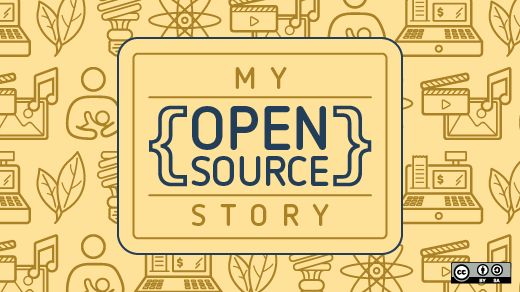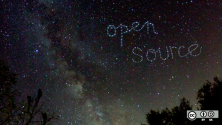A month ago, the term open source meant little to me. Then I enrolled in a class called "Foundations of an Open Source World," and now open source principles are integral to my way of thinking, and the community constantly amazes me.
As a complete open source rookie, I often wished for an instruction manual to help ease my transition into the community. Following are four takeaways from my journey, in hopes that they will help other newcomers.
1. There’s no prerequisite to learning and applying open source principles
Everyone is welcome in the open source community, regardless of background. As a social science student with no training in computer science, I was initially lost and even occasionally frustrated when class discussions focused on Linux, GNU, and other acronyms that had no meaning for me. But I quickly learned that, although open source principles are rooted in software and technology, it is not only about technology. Class discussions led to topics like social innovation, political systems, economic structure, governmental regulations, and other aspects of society. It turns out that many open source principles apply to both technical and social realms.
For example, the idea of "civic hacking" originates from technical hacking, but the social movement led to initiatives such as "Adopt a Fire Hydrant" that have expanded across the country. When he spoke to our class, Red Hat's Michael Tiemann explained how varying rates of software and hardware development affect the speed of change, risk, and other factors: Software development and growth correlates with supply and demand of new technology, whereas hardware development remains relatively linear. This principle also applies to the social sciences, as the Malthusian trap characterizes in the relationship between population growth and food production. Another example is the "Safe Routes to School" initiative, which embodies open source principles to create practical tools that serve the community.
2. Open source encourages us to consider the origins of existing creations
We often get so caught up with the practical functionality of products and services that we neglect to consider their history. Open source principles emphasize the importance of accessing and modifying the source code that runs behind the scenes, which encourages a deeper level of understanding and awareness. Considering the origin of products and services helps us realize any assumptions we may have had while designing and creating them, the resources and power dynamics that made their creation possible, and what parts of their legacy are carried on. Just as examining foundations encourages both introspection and innovation, investigating source code and the complexity around it is a great path to innovation and entrepreneurship. It allows us to re-imagine the status quo and see the possibility of doing things differently.
3. Open source offers the ability to choose, which is distinct from the choice itself
Choice has always been a privilege of those who can afford to pay for it. Open source principles challenge that inequality by opening up source code to all users. Applying this principle to governmental decisions, financial structures, and so on offers every member of a society the option, the right, and sometimes the responsibility to take action. Many people do not realize that the ability to choose, distinct from the choice itself, is a privilege. Appreciating this distinction is important to understanding those who cannot afford the cost of certain choices. Open source does not demand a choice, but it offers people the option to choose—to understand the source code—and to investigate potential abuse as well as future opportunities. Understanding existing systems and structures is the first step to challenging standards and exploring innovations.
4. Open source is about community and collective contribution over structure and governance
Participation and community are two fundamental pillars of the open source world. The collective intelligence and diversity of a community boost innovation and make the process more rewarding. Initiatives such as City Camp and GitHub are living examples of how the open source community can lead to powerful changes.
On a personal level, I have already witnessed the magic of open source in a community setting. Inspired by the concept of open source principles applied to governance and policing, I emailed a link to my public policy professor, who was teaching a class on North Carolina’s policing and the criminal justice system. The professor restructured his lecture based on the information I had sent him, and the class had a rich and dynamic discussion based on data from Open Data Policing.
I spent only about 10 hours in classrooms studying open source, but now I spend dozens every week reading and learning more about open source world and sharing my journey with friends and family. This is precisely the beauty of the open source community: The classroom constitutes only a portion of the journey; its concepts have no limit.






1 Comment